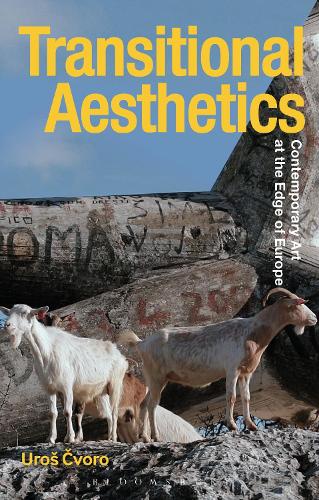
Transitional Aesthetics: Contemporary Art at the Edge of Europe
(Hardback)
Publishing Details
Transitional Aesthetics: Contemporary Art at the Edge of Europe
By (Author) Uro Cvoro
Bloomsbury Publishing PLC
Bloomsbury Academic
17th May 2018
United Kingdom
Classifications
General
Non Fiction
Social and political philosophy
Political geography
709.4709051
Physical Properties
Hardback
184
Width 156mm, Height 234mm
440g
Description
Using the way in which artists from the former Eastern bloc perceive the experience of EU integration and transition from a Soviet past as a conceptual launching pad, this book explores how artists critically inhabit a permanent state of in-between to capture the simultaneous existence of multiple and overlapping temporalities. Transitional aesthetics are artistic strategies that disrupt and interrogate ideologically loaded trajectories of cultural, social, or political transition. Examples of such trajectories include the movement from totalitarianism to democracy (post-socialism), from war to freedom and reconciliation (post-conflict), and from the edges of Europe to its centre (inclusion in the European Union). These transitional states include: the future orientation of (failed) socialism and the perpetual present of global capital; the history of unresolved past conflicts and reconciliation through transitional justice; nationalist obsessions with the past and the cultural appeal of kitsch and retro objects in fashion, film and music; and the uncertain future promise of EU membership and resurgence of global right-wing populism, headed by figures like Berlusconi, Le Pen, and Trump. Transitional Aesthetics shows that apprehending time in contemporary art is fundamental to capturing the lived experience of a permanent state of instability; particularly relevant to Europe in the contemporary moment. In a world that has entered accelerated transition towards instability, understanding this experience has broad and resonating relevance for politics, art and society.
Reviews
Post-communism is not merely a historical condition; it is an ideology too that makes people mis-perceive their present, falsify their past and forget their future all in the interest of the new rulers. This has become obvious in former Yugoslavia like nowhere else in the post-communist world. In his book Uros Cvoro has excellently demonstrated both the intellectual courage to openly reveal this truth and scholars capacity to make his principle witness speak, the post-Yugoslav contemporary art, lucid, cheeky and unapologetic as ever a necessary reading for all those who are tired of all the empty promises of the post-communism. -- Boris Buden, Visiting Professor at the Faculty of Art and Design, Bauhaus University, Germany
Author Bio
Uros Cvoro is senior lecturer in Art and Design and a researcher at Contemporary Culture, Art & Politics (CCAP) at the University of New South Wales, Australia.
